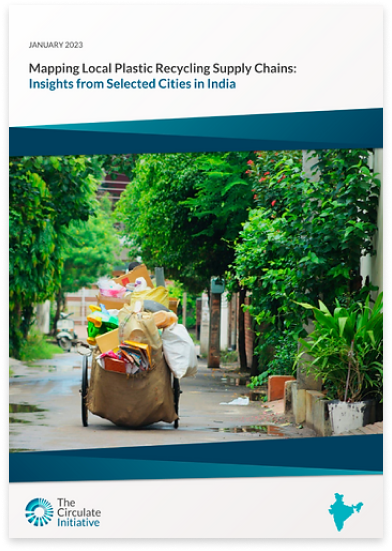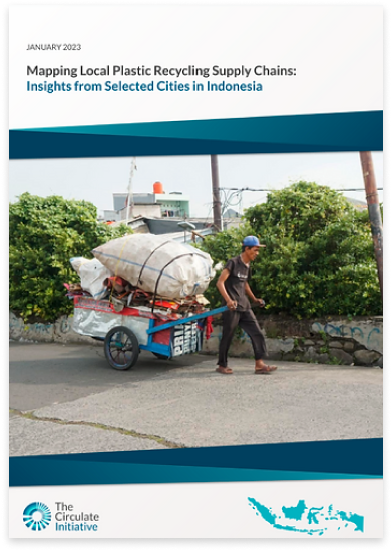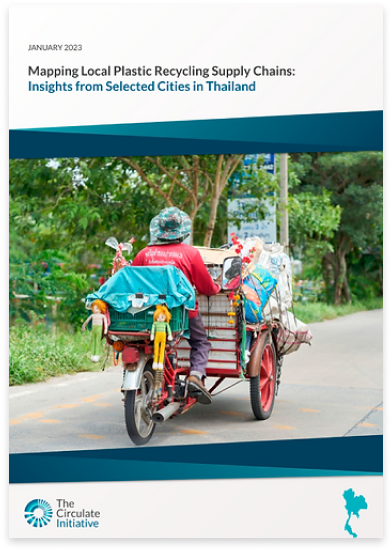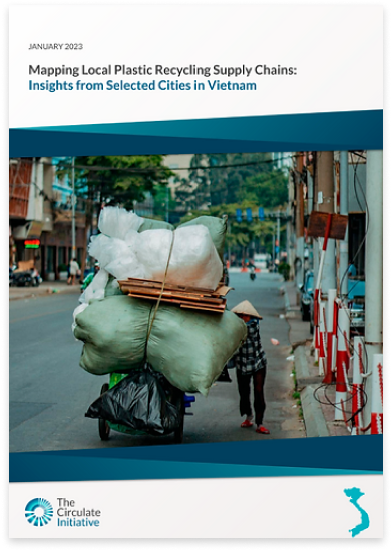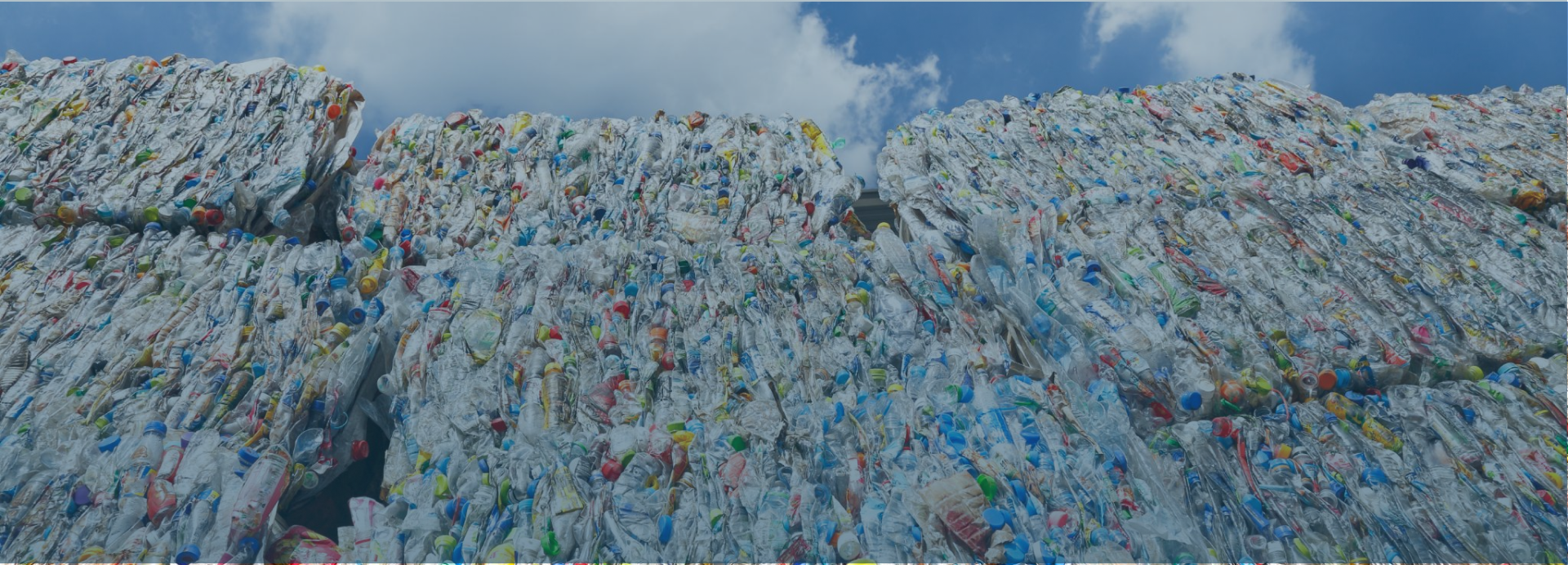

Mapping Local Plastic Recycling Supply Chains: Insights from Selected Cities in India, Indonesia, Thailand, and Viet Nam
Though many urban areas of India, Indonesia, Thailand, and Viet Nam have municipally-managed waste collection services, there remains a high reliance on the informal sector for the collection, aggregation, and recycling of plastic. The opportunity to improve the management of plastic waste in these countries is vast.
Recognizing the need to explore plastic supply chains in more localized contexts, The Circulate Initiative conducted a detailed assessment of wastesheds in India, Indonesia, Thailand, and Viet Nam. A wasteshed refers to a geographical region with a common solid waste disposal system, or an area designated by the governing institutions as appropriate for developing a common recycling program. The assessments of the wastesheds aim to provide a better understanding of existing practices and systems, and identify where improvements could be made. This report provides a summary of the key findings for each of the wastesheds covered in this study.
Key takeaways from this report include:
- The reviewed wastesheds in India (Delhi, Mumbai, and Chennai) have well-established informal plastic waste recycling systems, via a network of entrepreneurial relationships and micro-businesses, but these informal systems also have environmental and welfare issues that need to be addressed.
- The reviewed wastesheds in Indonesia (Greater Jakarta, Makassar, and Surabaya) have a dynamic and extensive network of collection and potential sorting sites, but domestic plastic waste flowing through the system into recycling is still minimal.
- The reviewed wastesheds in Thailand (Bangkok, Chon Buri, and Rayong) show that the market structure for recycling is strong, but there is still a heavy reliance on the informal sector for collection of recyclables.
- The reviewed wastesheds in Viet Nam (Hanoi, Ho Chi Minh City, and Da Nang) show that the national and local governments play a strong role in the waste management sector, with limited contracting and involvement of the private sector.
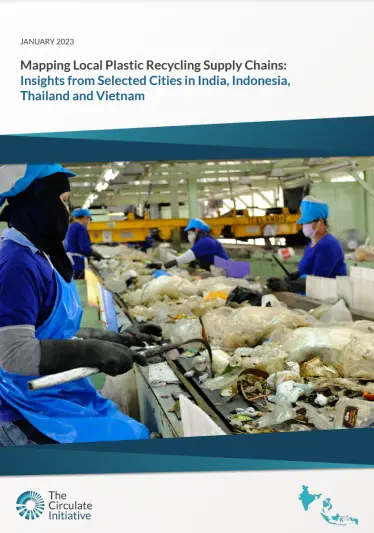
Read Report
*By clicking the "Download" button, you are agreeing to The Circulate Initiative’s Terms of Use and Privacy Policy.
